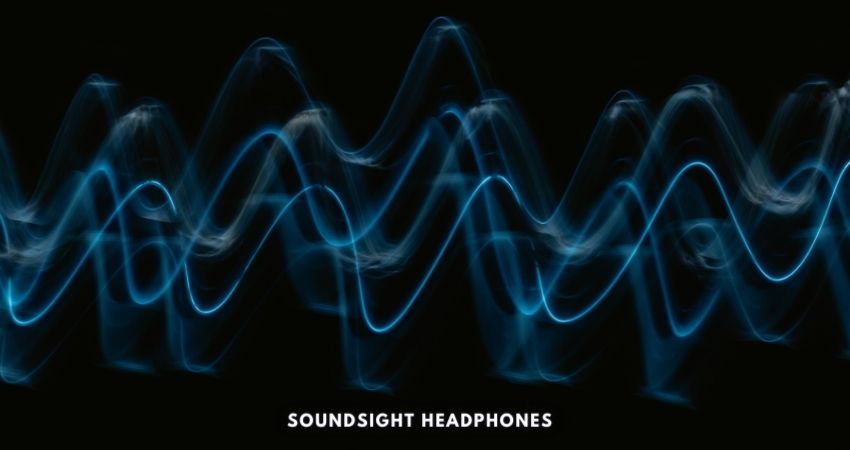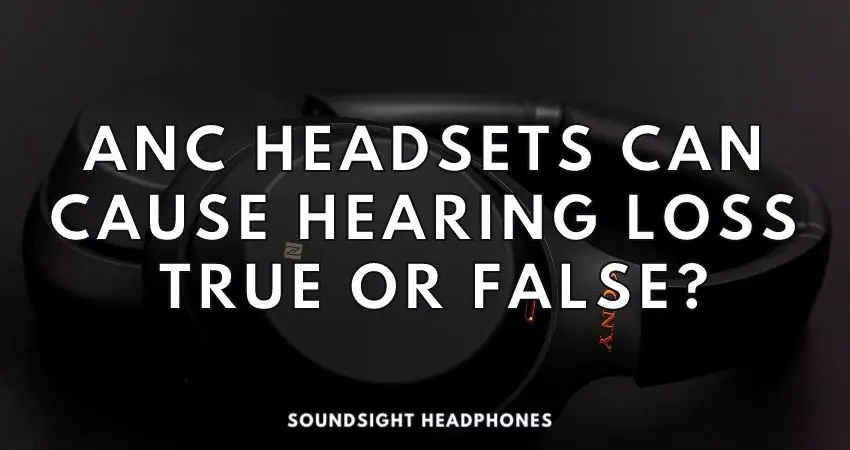The World Health Organization has classified noise-induced hearing loss as a growing public health problem. Noise-induced hearing loss is most often caused by listening to loud music or participating in other noisy activities without hearing protection. Nowadays, many noise-canceling headphones are available and reduce noise by generating anti-phase noise, but does that mean they help prevent or contribute to hearing loss?
This article discusses the possibility of noise-canceling headphones causing hearing loss or whether they help protect hearing. The discussion on this topic began because of the increasing popularity of noise-canceling headphones. Many people develop hearing problems, tinnitus, and other conditions due to excessive noise and/or music listening.
Along with this, I also touch on the points of:
- What is noise-induced hearing loss?
- Can noise-canceling headphones cause hearing loss?
- Can noise-canceling headphones protect your hearing better than regular headphones?
What is noise-induced hearing loss?
Noise-induced hearing loss is a condition in which a person’s hearing is impaired due to too much noise exposure or continuous loud noises for an extended time. The loss of hearing might be gradual, and it usually becomes noticeable in the 2,000 to 10,000 frequency range in the form of:
- Smaller ability to hear sounds
- Voices or other noises are muffled
- Being easily distracted by background noise
- Inability to hear high-frequency sounds
Hearing loss occurs gradually over time and cannot be reversed. The earlier a person can be treated or preventative measures are taken, the better the chances of recovery. And there are other causes of hearing loss such as; aging, earwax build-up in the ear, excess wax in the outer part of the ear canal, hereditary conditions, etc.
Can noise-canceling headphones cause hearing loss?
No. Active Noise Reduction headphones do not cause hearing loss. The anti-noise generated by the ANC system cancels out or nullifies harmful noise that would otherwise be detected by the eardrum. As a result, ANC headphones offer better protection than ordinary headphones and provide a more comfortable listening experience.
Listening to high volume is more dangerous to your hearing than using your headphones’ active noise cancellation feature. Therefore, if you listen to music at a specific level that is too high, you may cause your own hearing loss. Also, if you feel the need to mask outside noise with high volume music, doing so comes at a costly price: your hearing.
Can Noise Cancelling Headphones Protect Your Hearing Better Than Regular Headphones?
High-end active noise-canceling headphones offer advanced and powerful noise-canceling, which neutralizes background noises around you. Not all ANC headphones are high-performing, but those that employ high-quality ANC systems can protect you from noise-induced hearing better than regular headphones.
Although noise cancellation helps to cancel out background noise, it is important not to think of it as a foolproof solution for hearing protection. Even when using active noise cancellation, your ears can still be damaged by background noise. Earmuffs or good-quality earplugs are still recommended for people who engage in continuous exposure to loud noises. LINK HERE

How do active noise cancelling headphones protect you from hearing loss?
I understand the skepticism of some who think that because ANC headphones generate extra noise, they are supposed to contribute to your hearing loss. But that’s not how psychoacoustics work. To understand why noise-canceling headphones protect your hearing, it’s important to know how sound waves interact with each other.
Let me explain: Remember that hearing loss is caused by damage to the hair cell receptors in the inner ear. This only happens when high amplitude noise or sound waves reach the inner ear and damage the hair cells. ANC technology cancels or destroys the incoming noise by adding a positive (original noise) and negative (anti-noise generated by ANC) sound wave of similar amplitude.
Active noise cancelling headphones are not dangerous and do not cause tinnitus. In fact, they’re actually beneficial once you get used to them and even protect your hearing.
You can also read this article about how sound waves interact with each other to understand why active noise-canceling headphones protect your hearing.
FAQ regarding ANC Headsets and Hearing Loss
Can noise-canceling headphones cause hearing loss?
No. Noise canceling is safe and has been proven to reduce noise levels by up to 75%. It cannot protect you from the high music playback volume inside your headphones and should certainly not be used as a hearing protection measure in constantly noisy environments.
Should I use ANC earphones as hearing protection?
No, ANC headphones shouldn’t be used as hearing protection devices. Although active noise reduction, headphones offer significant hearing protection over traditional headphones. They are not a safe long-term solution for hearing protection, as they do not offer extremely high protection against high frequencies and cannot protect you from low frequencies.
What level of hearing protection do active noise-canceling headphones provide?
Noise-canceling headphones offer on average a total of -20 dB, with some of the best high-end ANC headphones offering up to -30 dB of noise attenuation across the audio spectrum. In general, the noise attenuation is not uniform across the entire frequency spectrum, with high frequencies being attenuated more than low frequencies.
The hearing protection provided by active noise cancellation depends on the strength of the active noise cancellation and the intensity of the noise source. Due to the logarithmic nature of the decibel unit, a 30 dB reduction provides twice as much protection as a 20 dB reduction. In addition, the time frame in which you protect your ears is also an essential factor in hearing protection.
The effective attenuation of 30 dB hearing protection decreased from 30 dB to 18 dB when used only 98% of the time during noise exposure.
Conclusion
In summary, headphones with active noise cancellation or high passive noise reduction offer hearing protection capabilities. They are quite effective, especially those in the 25-30 dB noise attenuation range. Still, you should be careful not to use them solely as a replacement for earplugs or hearing protectors, as they protect you from some dB of noise, but no more.
You should also try to limit your listening time to safer levels when using ANC headphones if you want your hearing to be impeccable. If you are a sound engineer and you work long hours, you might want to make a habit of preserving your hearing health with the best earplugs for musicians and not rely on ANC headphones.
Finally, I hope I’ve answered your question and taught you an interesting thing or two about active noise cancellation headphones and their acoustic characteristics. If you have any questions or comments, please share them in the comments section below.
